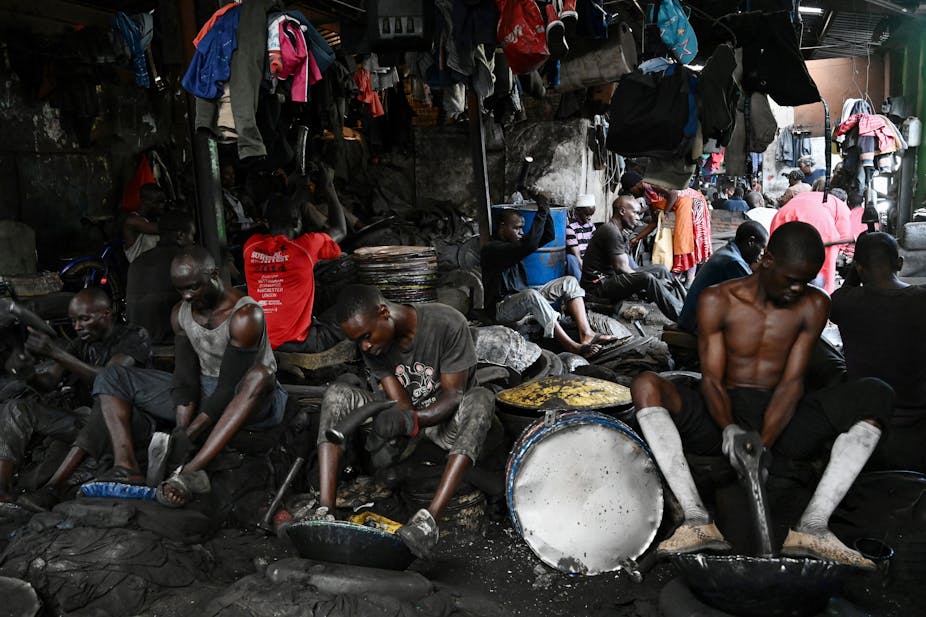Many countries in the world are taking measures to prevent the spread of the COVID-19 epidemic, including maintaining social distance and observing personal hygiene.
Many people are now working remotely to avoid interaction with colleagues. Educational and religious institutions have been closed down in order to avoid large gatherings of people.
In Kenya, individuals who return from abroad have been required to self-quarantine for at least 14 days before they can go on with their normal life. This has now become mandatory and people are being taken to facilities identified by the government at their own expense.
The Kenyan government has also enforced a dusk-to-dawn curfew. In addition, residents of Nairobi, Mombasa, Kwale and Kilifi have been advised not to leave their counties.
When read together, these measures raise certain existential and ethical concerns. Restricting movement and forcing people to stay home might minimise the risk of spreading the virus. But these measures pose serious economic challenges for those in the informal sector. Their livelihoods depend on daily incomes. The inability to look for work will worsen poverty and suffering.
The reality of extreme poverty versus disease control in Kenya and elsewhere presents a real dilemma. Uncontrolled movement of people increases the risk of spreading the virus. But if people cannot move freely to make a living there is a heightened risk of hunger and starvation. Either way, there seems to be an unpleasant choice to be made by both the government and the people.
As the government of Kenya strives to resolve this dilemma there must be a balanced consideration of decisions. This must prioritise measures that will maximise benefit and minimise harm for the majority of citizens. The voice of the poor majority in Kenya has to carry more weight in the negotiation.
Meeting basic needs
Governments and other policy makers have an obligation to ensure that the spread of the virus is minimised. However, in resource limited settings like Kenya, the balance preventing more COVID-19 infections, and the underlying reality of poverty, lack of employment, and poor health care systems presents a big challenge.
Developed countries can afford to cushion public services and individuals from the effects of the coronavirus. And similar efforts are being made in other countries in Europe, Asia and Australia. In Africa, where many economies are struggling, stimulus packages may be a tall order. Much of the continent still depends on development aid and loans, especially in crisis situations.
For example, Kenya recently received a $50 million loan from the World Bank to support the country’s emergency response to the COVID-19 pandemic. The primary beneficiaries will be infected people, at-risk populations, medical and emergency personnel, medical and testing facilities, and national health agencies.
It may take several weeks for people at the grassroots to benefit from the funding. Yet their needs are too immediate to be subjected to any delays. It is true that President Uhuru Kenyatta announced a stimulus plan to buoy Kenya’s sagging economy, but some have argued that the tax driven effort will benefit the rich more than the poor.
According to the Chronic Poverty Advisory Network’s 2018 report, almost 80% of Kenyans are either income poor or near the poverty line. As at December 2019, Kenya had an unemployment rate of 9.31%. Data from the Institute of Economic Affairs indicates that the informal sector – which employs over 80% of Kenya’s working population – is usually associated with low and irregular pay. Thus, the majority of those employed in the sector are poor.
So, when the government of Kenya encouraged people to stay and work at home, many people in informal employment did it reluctantly. The main worry in many homesteads is that if their breadwinners do not work for even a single day, it will lead to starvation. Indeed, thousands of residents of the Kibra slum in Nairobi caused a stampede while scrambling for food aid despite the risk of mass congregation.
This reflects the fears of millions of people across Africa where lockdowns and curfews have been imposed. Some Kenyans have indicated that they would rather die of a pandemic than of hunger.
Best interests
The government can either allow people to continue with their normal life and risk the spread of the virus, or force people to stay at home where those in informal jobs would miss the opportunity to provide the basic needs of their families. Of course if it had the capacity – or is it the good will? – to implement stimulus measures like the US, Europe and elsewhere, there would be no dilemma to speak of.
Kenya ignored calls to restrict international flights into the country when the new coronavirus was declared a pandemic. The government went ahead and allowed a flight from China to land at the Jomo Kenyatta International Airport with 239 passengers on board. Such acts of negligence were committed despite the moral responsibility of the government to protect citizens from harm.
The government must now ensure that it fulfils this primary obligation by cushioning Kenyans from the effects of extreme poverty. From a utilitarian perspective, the government is charged with the moral responsibility to promote the greatest good for the greatest number of people.
Continued enforcement of the curfew and restriction of cross-country movement only adds to the suffering of the poor in Kenya. Without sufficient mitigating measurements it would only be a matter of weeks before families began to lack for the basics. The slightest disruption to the normal chain of events in Africa, even for a brief period, can spell disaster.

